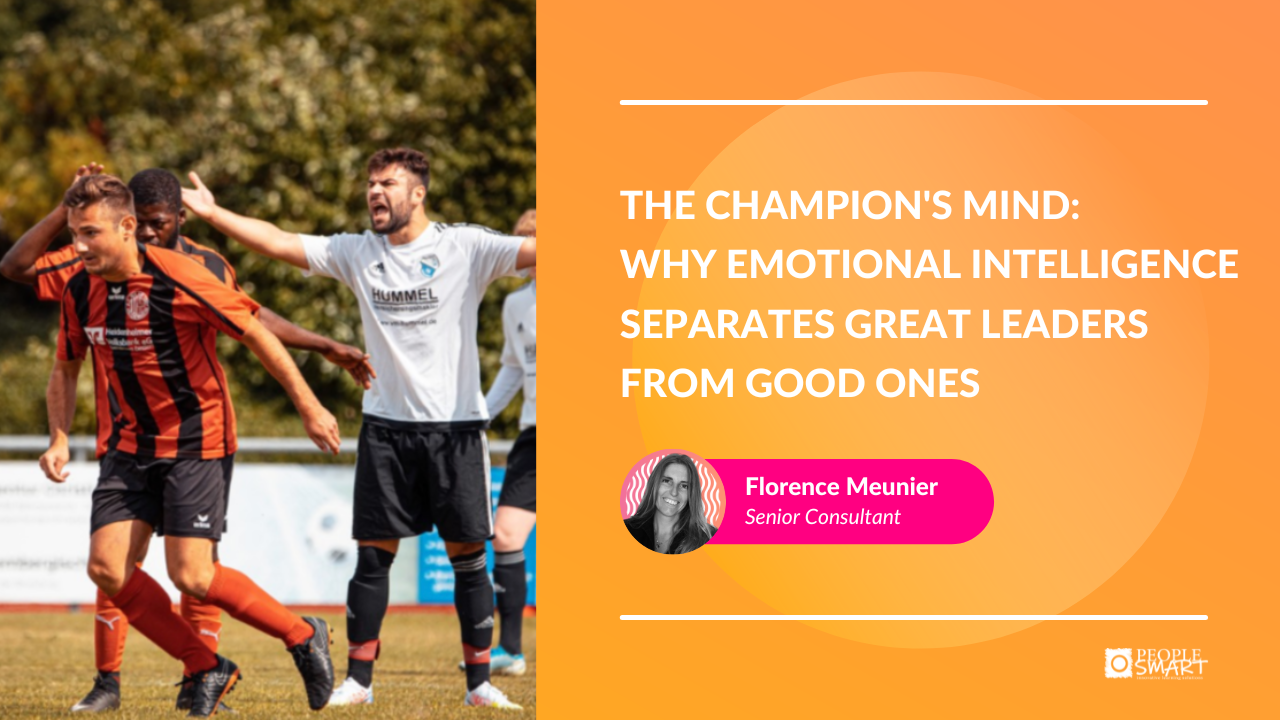A three-year study of AMADORI, a supplier of McDonald’s in Europe, assesses links between emotional intelligence, individual performance, organizational engagement, and organizational performance.
Emotional intelligence was found to predict 47% of the variation in manager’s performance management scores. Emotional intelligence was also massively correlated with increased organizational engagement with 76% of the variation in engagement predicted by manager’s EQ. Finally, plants with higher organizational engagement achieved higher bottom-line results building a link between EQ->Engagement->Performance. During this period, employee turnover also dropped by 63%.
Question 1 – Does EQ/EI affect individual performance?
To assess this question, two variables were evaluated: EQ/EI scores and Performance scores. EQ scores were measured using Six Seconds’ SEI Assessment. Performance scores were measured using AMADORI’s Performance Management System. The sample was 147 of AMADORI’s managers and middle managers.
EQ/EI scores Predicted 47% of the variation in managers’ performance results
To assess the power of the relationship between EQ/EI and performance, a linear regression analysis was conducted revealing a statistically significant positive relationship between the managers’ EQ scores and their results scores.
Discussion: EQ & Individual Performance
While many studies correlate emotional intelligence with business performance, this finding is unique because of the strong, significant link between the “hard” outcome of results and the “soft skills” of emotional intelligence. Since we know that emotional intelligence is learnable, this finding suggests that massive individual performance benefits can be reached by developing these skills, and by selecting managers who already exhibit these skills.
It’s also worth noting that unlike many of the other studies of emotional intelligence, this study is looking at an industrial sector. Thus, even in a basic infrastructure industry, it appears that emotional intelligence is a critical success factor.
Question 2 – Does EQ/EI affect organizational engagement?
To assess this question, two variables were evaluated: EQ scores and Engagement Index scores. The sample for EQ scores was 147 of AMADORI’s managers and middle managers and the sample for Engagement Index scores was three of AMADORI’s largest production plants.
Manager EQ scores predicted 76% of employee engagement
To assess the power of the relationship between managers’ EQ and organizational engagement, a linear regression analysis was conducted, revealing a statistically significant positive relationship between the managers’ EQ/EI scores and employee engagement scores.
Discussion: EQ & Organizational Engagement
The managers’ level of emotional intelligence appears to positively influence employee engagement. While this is a small number of plants, the trend is very powerful. In this sample, 76% of the variation in engagement is predicted by variation in manager EQ — suggesting that increasing manager EQ is imperative for organizations concerned with increasing employee engagement.
Question 3 – Does organizational engagement impact organization performance?
To assess this question, two variables were evaluated: Organizational Engagement Index scores and Plant Performance scores. The Organizational Vitality Signs assessment was given to AMADORI’s three largest plants to measure engagement, and AMADORI’s own Global Key Performance Indicator assessment was given to each plant to measure Plant Performance.
Discussion: Engagement & Organizational Performance
While the link between engagement and outcomes as measured by the OVS is well established, this study provides an important additional ingredient. The objective performance data from the company’s Key Performance Indicator substantiates the link between employee engagement and performance. Further, this finding adds evidence that the outcomes measure by the Organizational Vital Signs assessment are linked to “real world” performance
Conclusion
The study provides evidence to affirm the three of the questions:
- Does Emotional intelligence affect Individual Performance? Yes, strongly.
- Does Emotional Intelligence affect Organization Engagement? Yes.
- Does Organizational Engagement impact Organizational Performance? Yes.
There is strong evidence that emotional intelligence is predictive of individual performance; 47% of the variation in performance is predicted by variation in EQ/EI. Plants with more emotionally intelligent managers had higher organizational engagement. Plants with higher organizational engagement reached better performance.
It appears that Emotional Intelligence is a significant (perhaps even essential) capacity not only for individuals but also for entire organizations. These findings suggest that emotional intelligence and organizational engagement are key drivers of performance.
This is why investing in the development of emotional intelligence
for all key managers is a critical success factor.
We wanted to share with you this study carried out by SixSeconds as we consider it fundamental in the field of EI. It demonstrates beyond doubt the connection that starts from Emotional Intelligence and ends with higher individual performance via greater levels of engagement.
This means that companies in their Leadership Models and Assessment tools need to consider shifting the focus from purely cognitive competency frameworks to also – and especially – emotional intelligence ones. End of the day, human beings are made of emotions, how would it be possible to overlook their impact?
White Paper – Linking bottom line performance to EQ and climate – Organizational engagement, Emotional Intelligence and Performance (Lorenzo Fariselli, Joshua Freedman and Massimiliano Ghini in collaboration with Fabio Barnabé and Erika Paci of Gruppo Amadori) April 3, 2013 – published on 6seconds.org
For more information on this topic, please contact our team of experienced EI Practitioners and Coaches:






